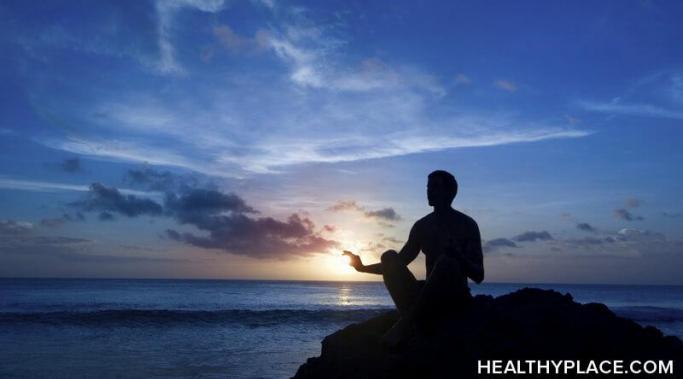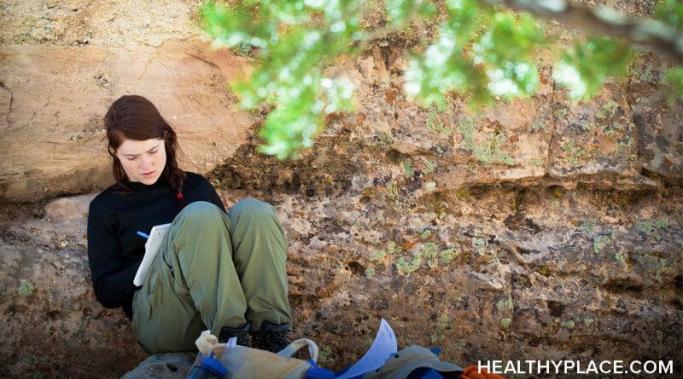We don't talk about anxiety and suicide very often. In fact, when we think about suicide, the first association that comes to mind is often depression. The link between suicidality and depression has been documented not only in the research literature but also in much of the media we consume, to the extent that the majority of people are aware of this link. Unfortunately, we are much less aware as a society of the impact that anxiety has on suicide. (Note: This post contains a trigger warning.)
Treating Anxiety
When you feel anxious, it is natural to look for ways to get rid of it immediately. In general, this is an effective response because it allows us to evade danger and survive. However, for chronic anxiety that isn't tied to immediate threats, it can be harmful to focus on avoiding or eliminating anxiety because this can actually exacerbate it. If I told you not to think about what to eat for breakfast, it's likely that the first thing you'd think of is precisely that, and this is the same trap we fall into with anxiety when we attempt avoidance. Rather than giving us peace of mind, it just brings our anxiety to the forefront of our minds. So, is there a better option? I believe the answer is a resounding yes.
This week, I was thinking about how you need a plan for anxiety. Anxiety can pop up without rhyme or reason, stay for an indeterminable amount of time, and sometimes can vanish so quickly that we don't realize the change right away. When anxiety arises quickly, it can be difficult to maintain the awareness that we are not anxiety, and this can make it more difficult to cope. Part of this difficulty occurs because anxiety affects more than our emotional state -- it affects our cognitive state. But a plan for anxiety can help with all this.
Take a deep breath for anxiety right now, then ask yourself how many times you took a deep breath today. What about this past week? I've been engaging in self-reflection about my breathing this past week, and I was surprised to find that I had no idea how many deep breaths I'd taken. I enjoy meditating and have found deep breathing helpful for staying calm when I'm handling a lot of stress, but I haven't made a conscious effort to breathe deeply in recent weeks. The more I thought about it, the clearer it became that deep breathing is not just a great way to relax, but our breath is how we communicate with our anxiety.
Much of our lives are governed by habit, and sometimes the habit of anxious avoidance. What we do when we wake up, when we go to work, how we work, what we eat, even who we spend time with. We learn these habits in part because we identify actions that make us feel good and then repeat them. Habits are also formed because of the negative outcomes we associate with actions, and anxiety is just about the best habit creator we have.
Social media and anxiety have a relationship although we're not quite sure what it entails. Tell me if this sounds familiar to you: You're at work, at home, or on the train between the two, and you pop onto social media. You go down the rabbit hole, and 15 minutes later you realize you've been immersed in this virtual platform without noticing the time passing by. And strangely, despite feeling fine during this immersion, you find yourself feeling worse after you're finished. You're likely experiencing the relationship between social media and anxiety.
Did you know that you can use your diet to reduce anxiety? Certain lifestyle and diet changes can reduce your anxiety when other strategies haven't completely worked for you. Even if you've created a calming space in your home, you've slowed down your anxiety, and you've cultivated self-kindness, using your diet to reduce anxiety may be the one thing you're missing.
You can reduce anxiety at home by creating a calming space that's easy to get to and helps you to relax.
It's important to know how to reduce anxiety fast because sometimes it feels like your anxiety builds up too quickly to do anything about it. Like you were feeling ok one minute and then suddenly felt extremely anxious? This is a common experience, and it often starts with something going just a little bit different than we might like.
The importance of being anxious? Alright, I get what you're thinking -- George made a mistake in his title. Who really thinks it's important to have anxiety, right? Well, to my surprise (and likely yours too), I've realized that anxiety is the best teacher, and knowing how to learn without anxiety is actually one of the most important skills you can develop if "being anxious" is what you do.









